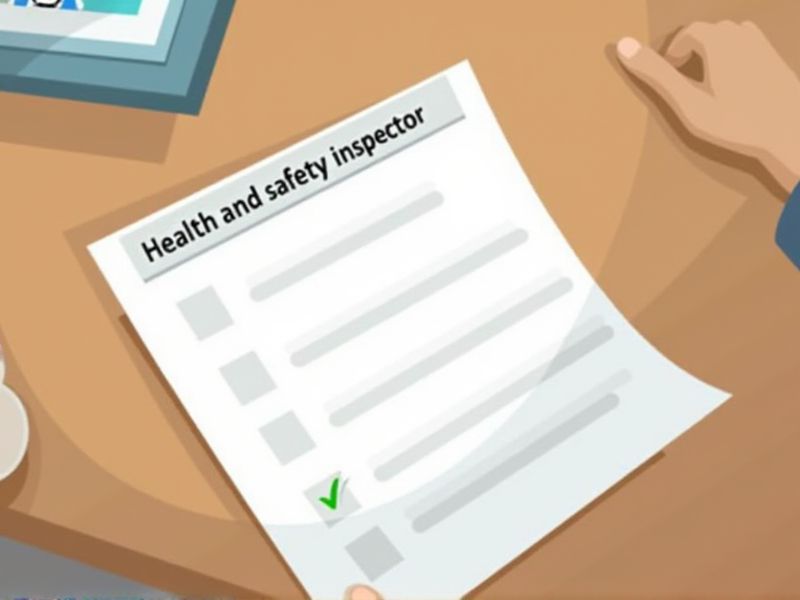
Health and safety inspectors play a crucial role in ensuring workplace environments adhere to standards that prevent accidents and health hazards. Due to the complex nature of regulations and diverse industries they assess, possessing specific certifications proves essential. These certifications equip inspectors with the necessary knowledge to evaluate and mitigate risks effectively. Some important certifications required for health and safety inspectors include those related to occupational health, risk management, and industrial hygiene.
OSHA 30-Hour General Industry Training Certification
Obtaining the OSHA 30-Hour General Industry Training Certification equips health and safety inspectors with comprehensive knowledge of OSHA standards and regulations, enhancing their ability to identify hazards effectively. This certification also improves inspectors' skills in developing and implementing safety and health programs, which reduces workplace incidents. Employers tend to prioritize certified inspectors, as they are perceived as better prepared for addressing compliance and safety concerns. Possessing this certification can lead to greater job opportunities, recognition, and credibility in the field.
NEBOSH International General Certificate in Occupational Health & Safety
The NEBOSH International General Certificate provides essential knowledge of health and safety principles, ensuring inspectors can effectively identify workplace hazards. Acquiring this certification leads to enhanced credibility in the field, making the inspector's assessments more authoritative. It equips inspectors with the skills to implement effective safety measures, reducing workplace accidents. With comprehensive training in international standards, inspectors can address diverse safety regulations across multiple regions effectively.
Certified Safety Professional (CSP) Certification
A Certified Safety Professional (CSP) certification enhances the credibility of health and safety inspectors by validating their expertise and knowledge in the field. Employers often prefer or require CSP-certified individuals because they have demonstrated competence in recognizing and managing workplace hazards. The certification process ensures that inspectors are up-to-date with the latest safety regulations and standards, reducing the risk of compliance issues and workplace incidents. CSP certification often leads to career advancement opportunities and higher salaries, as it signifies a commitment to maintaining high professional standards.
Certified Industrial Hygienist (CIH) Certification
Obtaining a Certified Industrial Hygienist (CIH) certification demonstrates a comprehensive understanding of occupational health and safety principles, which can lead to more effective identification and control of workplace hazards. The certification validates expertise in areas such as toxicology, air sampling, and risk management, which are crucial for reducing workplace incidents. Employers often favor hiring health and safety inspectors with a CIH certification, as it assures a standardized level of competency and knowledge. A CIH-certified inspector is typically better equipped to assess compliance with regulations, potentially reducing legal and financial risks for businesses.
Construction Health and Safety Technician (CHST) Certification
The CHST certification ensures health and safety inspectors possess the necessary knowledge and skills to identify and mitigate workplace hazards effectively. Acquiring this credential demonstrates a thorough understanding of construction safety standards and regulations, which can significantly reduce workplace injuries. Employers often seek certified professionals to ensure compliance with safety regulations and enhance their organization's safety culture. The certification can lead to better job opportunities and career advancement by distinguishing inspectors in a competitive field.
Hazardous Waste Operations and Emergency Response (HAZWOPER) Certification
HAZWOPER Certification ensures health and safety inspectors are equipped with the knowledge to handle hazardous materials safely. Compliance with OSHA regulations is required to mitigate health risks and prevent environmental contamination. Certification provides inspectors with the skills to respond effectively to emergencies, reducing potential harm. Proper training builds confidence in managing hazardous sites, enhancing overall inspection quality.
ISO 45001 Lead Auditor Certification
Health and safety inspectors benefit from ISO 45001 Lead Auditor Certification because it equips them with globally recognized standards for occupational health and safety management. This certification enhances their ability to systematically assess and improve workplace safety protocols in a structured way. A certified lead auditor can identify compliance gaps and propose effective corrective actions, thus minimizing workplace accidents and risks. Organizations often require this certification to ensure that inspectors possess validated expertise in maintaining a safe working environment.
First Aid, CPR, and AED Certification
Health and Safety Inspectors often work in environments where there is a high likelihood of accidents or emergencies, necessitating immediate response skills. Certification in First Aid, CPR, and AED ensures that inspectors are equipped to handle medical emergencies, reducing potential legal liabilities for organizations. This training also builds confidence and competence in inspectors, fostering a safer workplace atmosphere. Employers can trust that inspectors with these certifications adhere to compliance standards and can promote best safety practices effectively.
Risk Assessment and Management Certification
Risk Assessment and Management Certification equips health and safety inspectors with the necessary skills to identify potential hazards in workplace environments. Adequate training in risk assessment ensures that inspectors can implement effective strategies to mitigate these risks, enhancing overall workplace safety. Certification affirms that inspectors possess a standardized understanding of the essential principles and legal requirements surrounding health and safety protocols. Skilled and certified inspectors contribute to reducing the incidence of workplace accidents and comply with regulatory standards, which is beneficial for organizations and employees alike.
Emergency Response Management Certification
Emergency Response Management Certification is crucial for health and safety inspectors because it enhances their ability to assess and mitigate potential risks quickly. This certification ensures they are equipped with the knowledge to implement proper safety protocols during emergencies. Enhanced skills obtained through this certification help protect workers and minimize on-site accidents. Compliance with industry regulations is better achieved when inspectors possess up-to-date response management qualifications.
Summary
With certifications, you can enhance your credibility in the field of health and safety inspection. Acquiring specialized knowledge often results in improved compliance and risk management practices within organizations. Certified health and safety inspectors frequently experience better career advancement opportunities. Furthermore, businesses employing certified inspectors tend to see a reduction in workplace accidents and associated costs.
